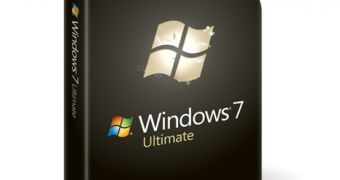Microsoft confirmed the first crack for Windows 7 Ultimate RTM that surfaced in under a week since the official sign-off date of the latest iteration of the Windows client. For the time being, the Redmond company has not supplied product keys to activate the gold development milestone of Windows 7, except for the OEM-SLP (System-Locked Preinstallation) product keys offered to original equipment manufacturers, as an integral part of the OEM activation 2.1 process. It is in fact a leaked OEM-SLP product key from Lenovo that is the backbone of the first activation hack of Windows 7 RTM. Reports in the wild indicate that the crack is capable not only to bypass the antipiracy measures set in place by Microsoft and activate the operating system permanently, but also pass Windows Genuine Advantage (WGA) validation.
“We are aware of reports of activation exploits that attempt to circumvent activation and validation in Windows 7, and we can assure customers that Microsoft is committed to protecting them from counterfeit and pirated software,” a Microsoft spokesperson revealed.
The way that the software giant regards the core of its antipiracy measures is as a set of efforts, software features and additional initiatives designed to protect customers that are tricked into buying pirated products that they believe are genuine. Attempts to circumvent the activation and validation processes of Windows are nothing new to Windows 7. In a similar manner, Windows Vista also catalyzed the creation of various bypass techniques, hacks and cracks, some of which also involved exploits of the OEM activation 2.0 schema for Vista, and now 2.1 for Windows 7.
“Microsoft strongly advises customers not to download Windows 7 from unauthorized sources. Downloading Windows 7 from peer-to-peer Web sites exposes users to increased risks – such as viruses, Trojans, and other malware and malicious code – that usually accompany counterfeit software. These risks can seriously harm or permanently destroy data and often expose users to identity theft and other criminal schemes,” the Microsoft spokesperson added.

 14 DAY TRIAL //
14 DAY TRIAL //